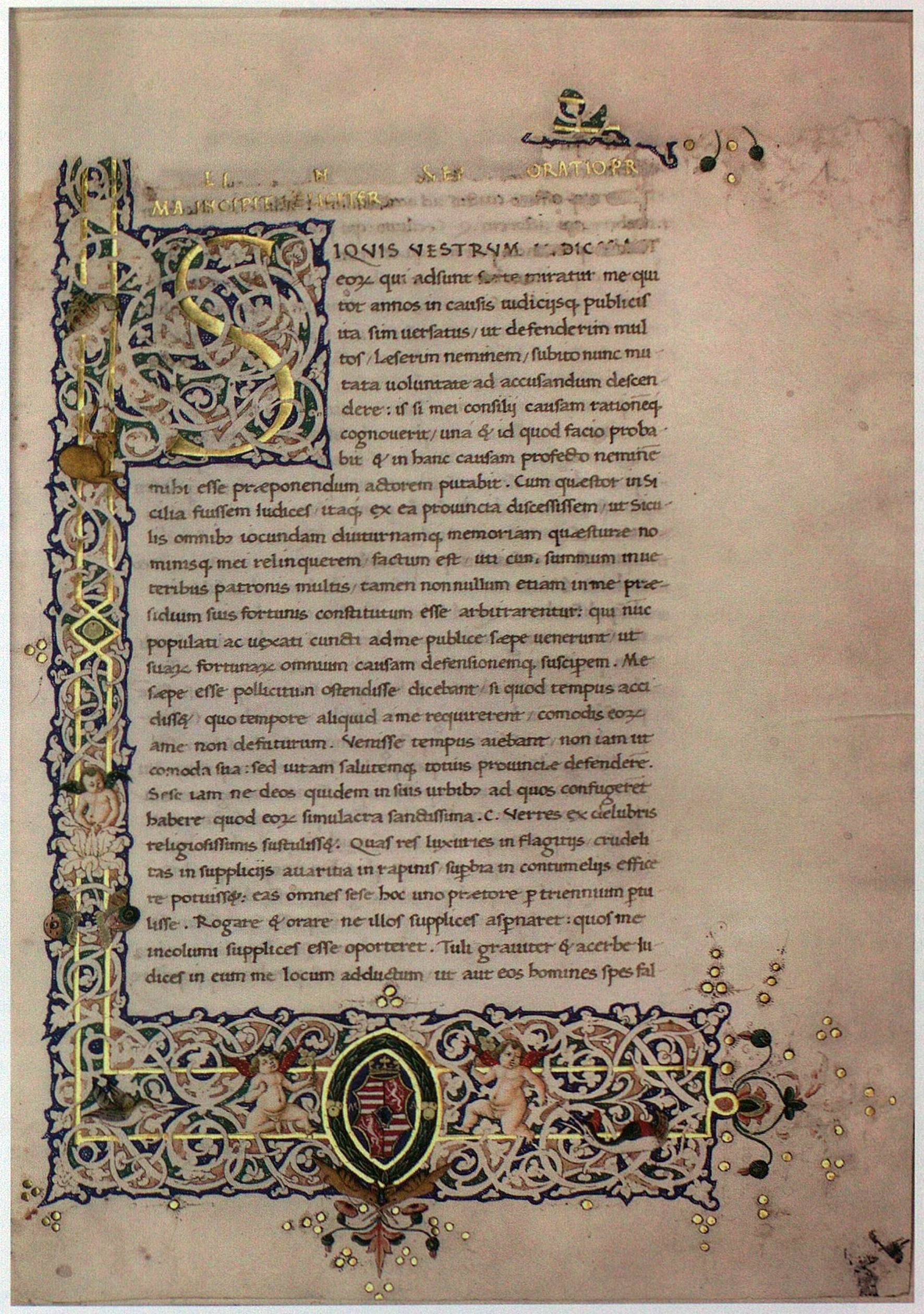Divinatio in Caecilium on:
[Wikipedia]
[Google]
[Amazon]


Cicero
Marcus Tullius Cicero ( ; ; 3 January 106 BC – 7 December 43 BC) was a Roman statesman, lawyer, scholar, philosopher, and academic skeptic, who tried to uphold optimate principles during the political crises that led to the esta ...
's ''Divinatio in Caecilium'' is his oration against Quintus Caecilius in the process for selecting a prosecutor of Gaius Verres (70 BC). Cicero asserts that he, rather than Q. Caecilius, will make the better prosecutor of Verres
Gaius Verres (c. 120–43 BC) was a Roman magistrate, notorious for his misgovernment of Sicily. His extortion of local farmers and plundering of temples led to his prosecution by Cicero, whose accusations were so devastating that his defence adv ...
, the Roman magistrate notorious for his misgovernment of Sicily
(man) it, Siciliana (woman)
, population_note =
, population_blank1_title =
, population_blank1 =
, demographics_type1 = Ethnicity
, demographics1_footnotes =
, demographi ...
. It is the only surviving text of a rhetorical genre, the ''divinatio'' ("prophecy"), that has survived.An observation made by Christopher P. Craig, "Dilemma in Cicero's ''Divinatio in Caecilium''", ''The American Journal of Philology'', 106(4) (Winter 1985:442–446), p. 442; Craig gives a bibliography of commentaries on the text.
The advocate for Verres, against whom the chosen orator must bend his rhetorical skills, was Quintus Hortensius Hortalus
Quintus Hortensius Hortalus (114–50 BC) was a famous Roman lawyer, a renowned orator and a statesman. Politically he belonged to the Optimates. He was consul in 69 BC alongside Quintus Caecilius Metellus Creticus. His nickname was ''Dionysia'' ...
, the ally of the ''optimates
Optimates (; Latin for "best ones", ) and populares (; Latin for "supporters of the people", ) are labels applied to politicians, political groups, traditions, strategies, or ideologies in the late Roman Republic. There is "heated academic dis ...
'' and principal orator
An orator, or oratist, is a public speaker, especially one who is eloquent or skilled.
Etymology
Recorded in English c. 1374, with a meaning of "one who pleads or argues for a cause", from Anglo-French ''oratour'', Old French ''orateur'' (14th ...
of the day.
Notes
External links
* Orations of Cicero {{classics-stub